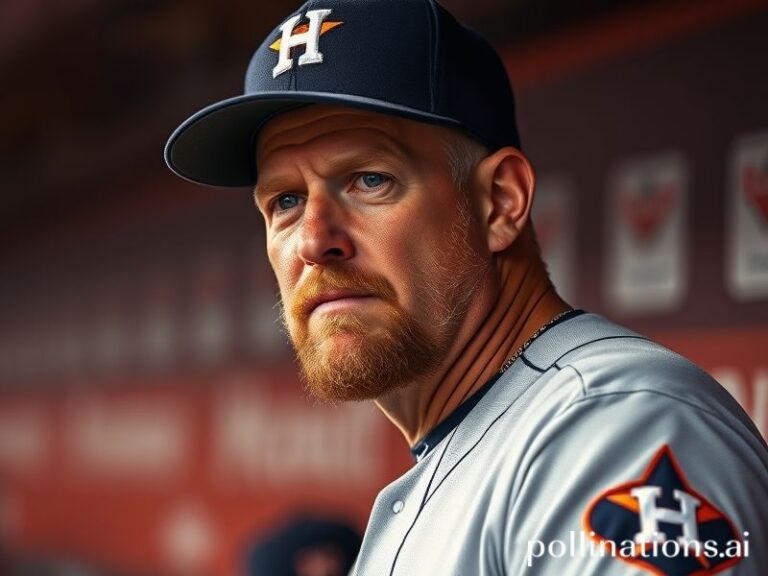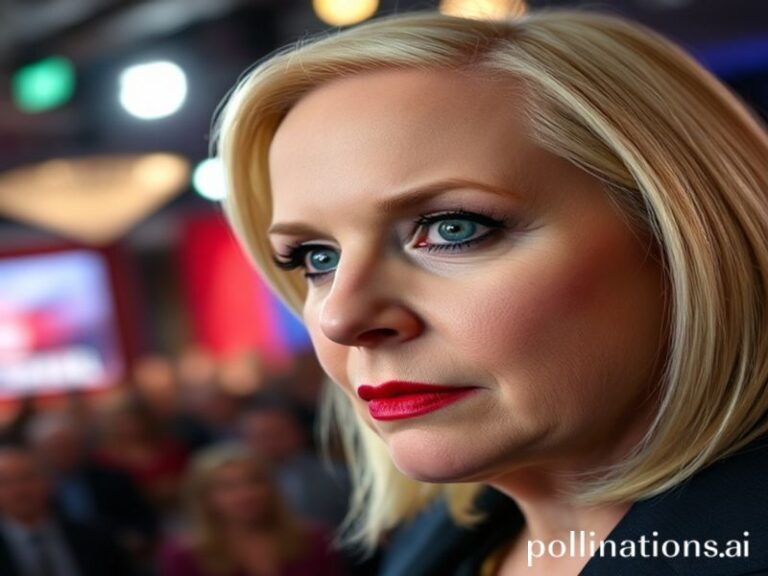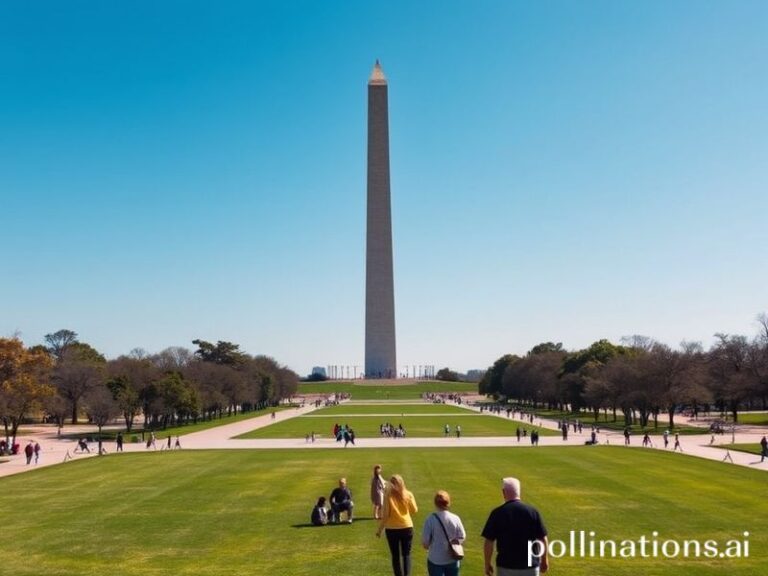Drew Barrymore: The World’s Favorite Redemption Arc and Accidental Diplomat
Drew Barrymore: The Planet’s Favorite Child Star Turned Global Comfort Blanket
By Dave’s Locker International Desk
Somewhere between the fall of the Berlin Wall and the rise of TikTok, Drew Barrymore became the last universally acceptable American export—less carcinogenic than Coke, less bellicose than aircraft carriers, and somehow more soothing than the entire pharmaceutical aisle at a Swiss apothecary. In a world that now treats sincerity like a controlled substance, Barrymore’s relentless warmth has become contraband everyone sneaks across borders.
Let’s be honest: the globe is currently running on a diet of doom-scrolling, supply-chain schadenfreude, and the faint hope that your neighbor’s crypto wallet finally implodes. Against that backdrop, Barrymore’s mid-pandemic talk show—filmed, at first, from her New York living room with the production values of a hostage video—became the televised equivalent of diplomatic immunity. From Lagos living rooms to Oslo co-working lofts, people tuned in to watch a 48-year-old former child addict hand out homemade banana bread to guests who, in any other country, would be masked and standing six feet apart. The UN may not list her as an NGO, but try telling that to the exhausted intern in São Paulo who whispered, “Obrigado, Drew,” while streaming the episode where she sob-laughs with Charlize Theron about motherhood and imposter syndrome.
Barrymore’s international resonance isn’t accidental; it’s geopolitical therapy disguised as daytime fluff. Europe, busy reheating Cold War anxieties, needs an American who doesn’t mention gas prices or Article 5. Asia, drowning in 996 schedules, craves a Westerner who extols naps as revolutionary praxis. Meanwhile, the Middle East—where daytime television is often a battleground of soap-opera intrigue—gets an hour of Barrymore literally rolling on the carpet in delight because her guest brought a rescue puppy. Soft power used to mean jazz diplomacy; now it’s a woman in a vintage band T-shirt hugging the editor of Vogue Mexico while both wear socks.
Her lineage helps. Hollywood’s original Barrymores were the Kennedys with better cheekbones: stage royalty who survived Prohibition, McCarthyism, and Technicolor. Handing that dynasty to a seven-year-old who then freebased her adolescence in Studio 54’s bathroom should have produced another tragic footnote. Instead, the universe got a redemption arc so tidy it feels algorithmically generated—yet apparently genuine enough that even the jaded French press corps refers to her as “not insufferable,” which, in Gallic, is practically a knighthood.
Of course, globalization being the monster that it is, Barrymore’s brand has been commodified faster than you can say “limited-edition eyeshadow palette.” Her Flower Beauty line ships to 17 countries, including Kuwait, where the lip crayons are reportedly used as currency in private WhatsApp swap groups. Her cookbook—part memoir, part apology note to kale—has been translated into Korean with a special appendix on which recipes survive a humid Seoul summer without wilting your self-esteem. Somewhere in Shenzhen, a factory stamps her face onto reusable grocery bags destined for Berliners who pretend they don’t watch American TV but binge her show via VPN. Capitalism, ever the attentive parasite, has metabolized even her healing aura into SKU numbers.
Still, the cynic’s handbook demands we ask: is Barrymore’s global group hug sustainable? The planet is busy stockpiling microplastics and grudges; sincerity ages like unrefrigerated sushi. Yet every time she trips over her own enthusiasm or allows a guest to ugly-cry without cutting to commercial, viewership data ping from Toronto to Tbilisi. Perhaps the world isn’t so much in love with Barrymore as it is exhausted by everything else. When the nightly news resembles a Michael Bay fever dream, a woman handing out homemade Rice Krispies treats on camera feels like defiance.
And so, as COP delegates argue over carbon credits and oligarchs race to Mars like it’s a Black Friday sale, Drew Barrymore keeps offering the one resource still in global surplus: unguarded kindness. It may not fix supply chains or lower sea levels, but for the length of a YouTube clip, the planet exhales. In the end, that might be the most subversive act left—proving that even in an age of weaponized everything, a heartfelt “I’m so glad you’re here” can still travel farther than a missile, and land softer than any of us deserve.







